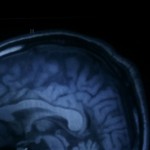 More and more research has raised concern over the dangers of concussions – one of the most common forms of head trauma – as many sufferers go on to experience persistent neurological symptoms throughout their lives.
More and more research has raised concern over the dangers of concussions – one of the most common forms of head trauma – as many sufferers go on to experience persistent neurological symptoms throughout their lives.
Now, scientists have discovered a clue as to why mild traumatic brain injuries (MTBI) can have such long-lasting health consequences.
In a study published in the journal Radiology, researchers found that white matter damage in the brains of people who had experienced concussions closely resembled the type of white matter damage found in patients with Alzheimer’s disease. These findings suggest that concussions set off a chain of neurological events that can cause long-term damage to the brain.
“It’s not the hitting your head that’s the problem. It’s everything else that happens after that,” said lead study author Dr. Saeed Fakhran, assistant professor of radiology in the Division of Neuroradiology at the University of Pittsburgh School of Medicine.
Concussions affect more than 1.7 million people in the United States annually – and around 15 percent of those people suffer lasting neurological symptoms.
Typically, when people experience concussions, CT and MRI scans of their brains look normal and doctors have remained largely in the dark regarding the best ways to treat these types of injuries, according to Fakhran.
Fakhran and his colleagues decided to take a closer look at the impact concussions were having on the brain. Researchers gathered data from 64 MTBI patients, with a mean age of 17, and 15 control patients. Thirty-nine percent of the MTBI patients had suffered a prior concussion and two-thirds of the patients had suffered a concussion as a result of a sports-related injury.
“We used something called diffusion tensor imaging, which is a subset of MRI looking at just the white matter,” Fakhran said. “It looks at areas where your white matter is injured.”
Due to the white matter injuries seen on the patients’ scans, researchers were able to hypothesize that when a person hits his or her head, it sets off a chain of events in the brain that can potentially lead to long-lasting neurological damage.
“Most people will tell you if you hit your head, you get a concussion, and the damage comes from the act of hitting your head,” Fakhran said. “(But) maybe the hitting your head is lighting the fuse and the damage comes from a neurodegenerative cascade (afterwards).”
If doctors can figure out how to stop the chain of damage that occurs in the brain after a concussion, Fakhran said they may be able to mitigate some of the side effects associated with the injury.
“If you look through medical record of kids with concussions, some of them have horrible consequences…Their school work falls off a cliff…It’s really scary to think about,” Fakhran said.
One of the most disabling side effects of concussions is sleep-wake disturbances, which disrupt sleep and can seriously decrease quality of life in patients, leading to memory problems and even social dysfunction.
“Imagine not sleeping all night and having to go to work and sit at work all day. You’re not able to concentrate, your grades at school will fall. If you can’t sleep, you can’t function,” Fakhran said.
A subset of the patients in Fakhran’s study suffered from sleep-wake disturbances – which researchers were able to link to abnormalities in the hippocampus area of the brain. Fakhran pointed out that one of the earliest signs of Alzheimer’s disease is sleep-wake disturbances.
Though more research is needed, the scientists hope that by pinpointing the areas of the brain in which various concussion symptoms originate, they will be able to find a way to stop those symptoms before they progress and cause long-term neurological problems.
“Hitting your head is lighting the fuse. If you lit the fuse and I blow it out, you just have a bruise, no damage done. But if you don’t, then it gets down to the bottom and explodes. To me the explosion is Alzheimer’s,” Fakhran said.